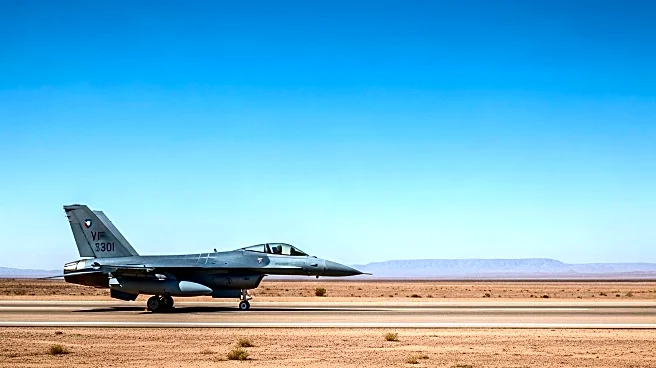What's Happening?
President Trump has announced efforts to regain control of an airbase in Afghanistan that was abandoned during President Biden's withdrawal from the country. The airbase, once the largest U.S. base in Afghanistan, was taken by the Taliban in 2021 after local Afghan forces surrendered. Trump emphasized the strategic importance of the base, noting its proximity to China's nuclear weapons facilities. The Taliban has attempted to normalize relations with the U.S. since the withdrawal, but the process of reclaiming the base remains unclear. Recent diplomatic engagements between U.S. envoys and the Taliban have focused on bilateral relations and investment opportunities.
Why It's Important?
The attempt to reclaim the airbase reflects ongoing U.S. strategic interests in Afghanistan, particularly concerning regional security and counterterrorism efforts. The base's location near China adds a layer of geopolitical significance, potentially influencing U.S.-China relations. The move also highlights the enduring impact of the U.S. withdrawal from Afghanistan, which has been criticized for its chaotic execution and resulting casualties. Reclaiming the base could bolster U.S. military presence in the region and serve as a counterbalance to Chinese influence.
What's Next?
The U.S. may engage in diplomatic negotiations with the Taliban to facilitate the reclamation of the airbase. This could involve discussions on security arrangements and potential cooperation on counterterrorism efforts. The situation may also prompt further diplomatic engagement with regional stakeholders, including China, to address broader security concerns. The outcome will depend on the Taliban's willingness to cooperate and the U.S.'s ability to navigate complex geopolitical dynamics.
Beyond the Headlines
The effort to reclaim the airbase underscores the long-term strategic challenges faced by the U.S. in Afghanistan. It raises questions about the effectiveness of past military interventions and the future of U.S. foreign policy in the region. The situation also highlights the complexities of engaging with the Taliban, a group with a contentious history and evolving political dynamics. The broader implications for U.S. military strategy and regional alliances remain to be seen.









